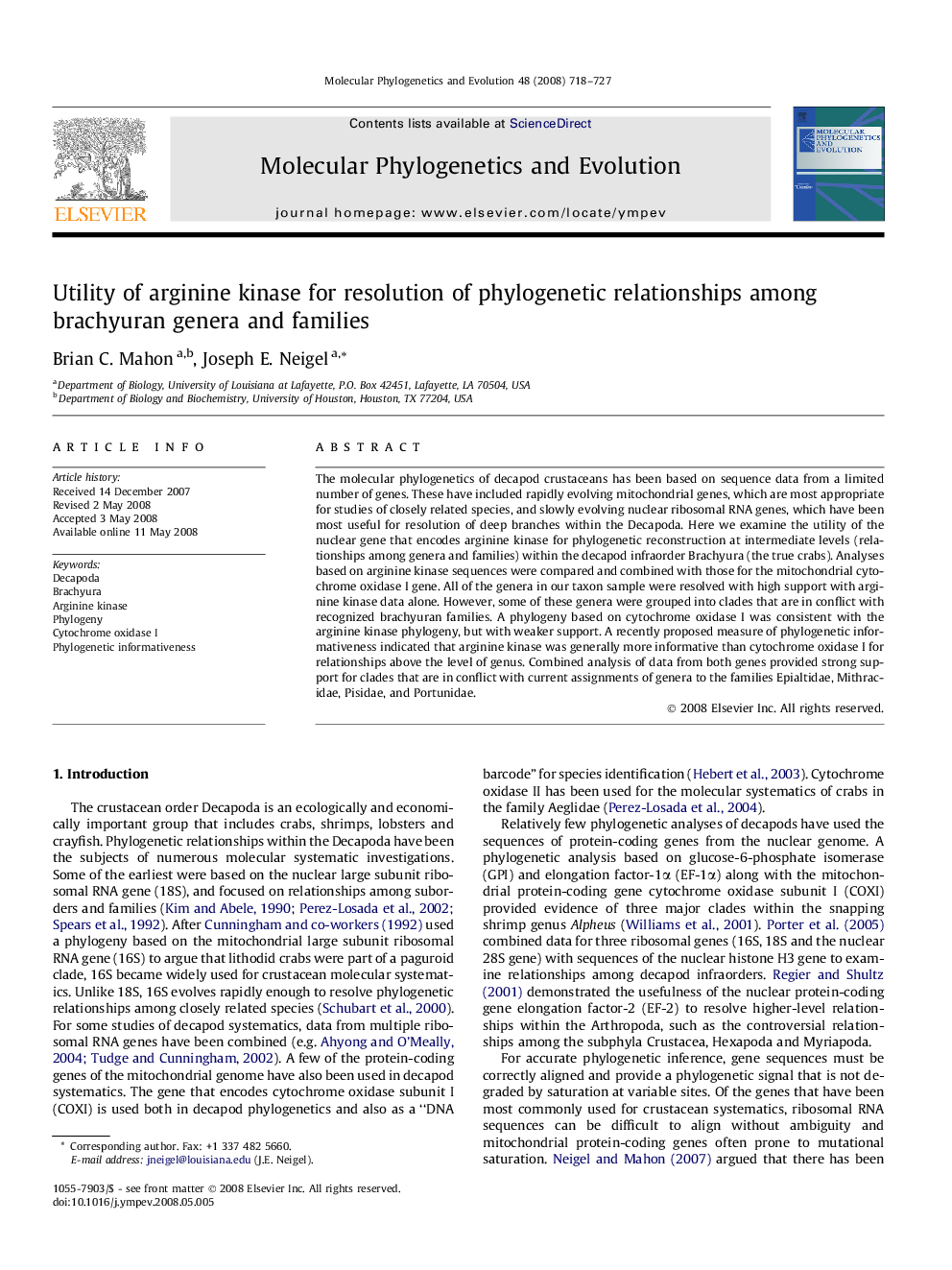| Article ID | Journal | Published Year | Pages | File Type |
|---|---|---|---|---|
| 2835095 | Molecular Phylogenetics and Evolution | 2008 | 10 Pages |
The molecular phylogenetics of decapod crustaceans has been based on sequence data from a limited number of genes. These have included rapidly evolving mitochondrial genes, which are most appropriate for studies of closely related species, and slowly evolving nuclear ribosomal RNA genes, which have been most useful for resolution of deep branches within the Decapoda. Here we examine the utility of the nuclear gene that encodes arginine kinase for phylogenetic reconstruction at intermediate levels (relationships among genera and families) within the decapod infraorder Brachyura (the true crabs). Analyses based on arginine kinase sequences were compared and combined with those for the mitochondrial cytochrome oxidase I gene. All of the genera in our taxon sample were resolved with high support with arginine kinase data alone. However, some of these genera were grouped into clades that are in conflict with recognized brachyuran families. A phylogeny based on cytochrome oxidase I was consistent with the arginine kinase phylogeny, but with weaker support. A recently proposed measure of phylogenetic informativeness indicated that arginine kinase was generally more informative than cytochrome oxidase I for relationships above the level of genus. Combined analysis of data from both genes provided strong support for clades that are in conflict with current assignments of genera to the families Epialtidae, Mithracidae, Pisidae, and Portunidae.
